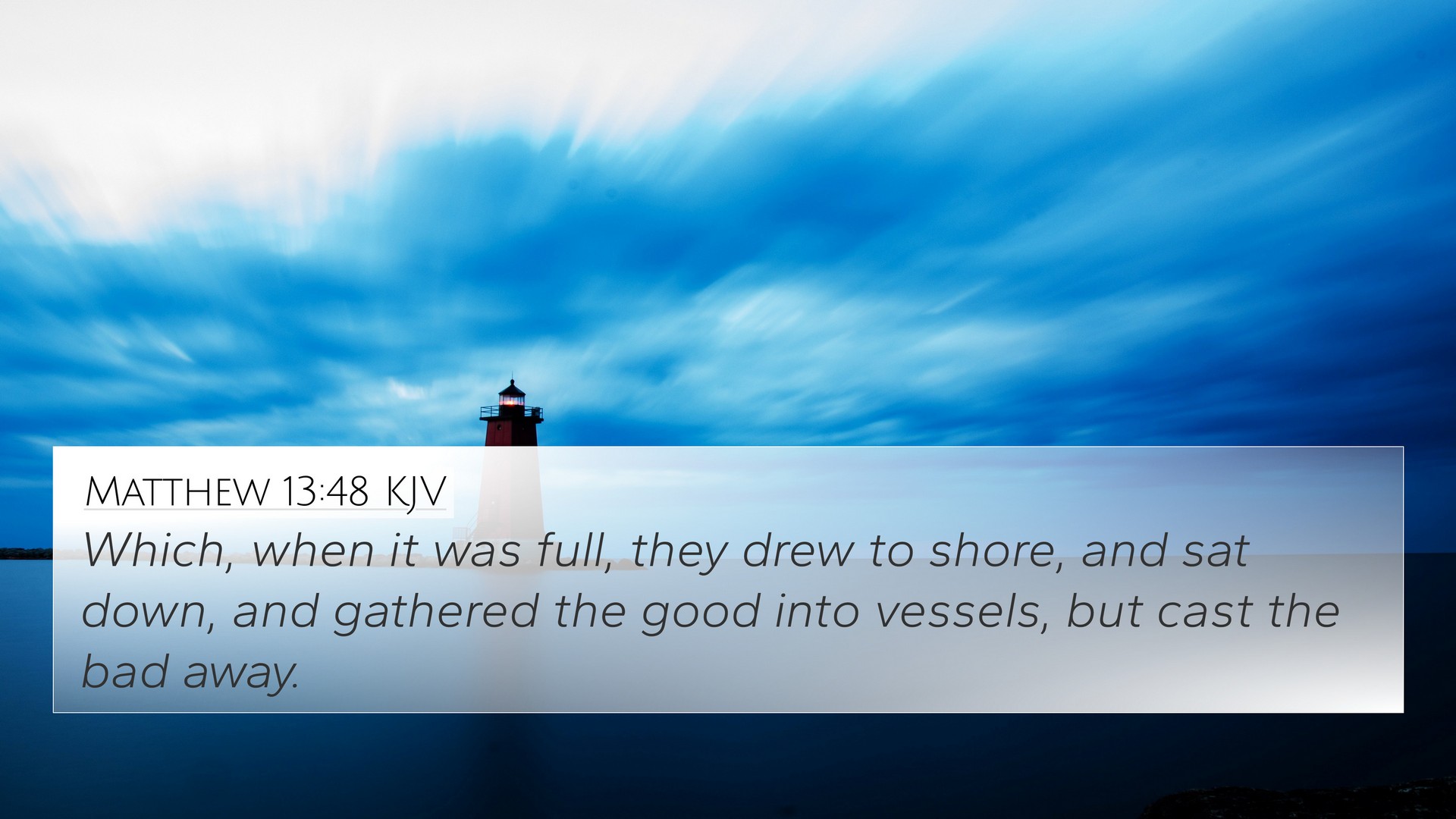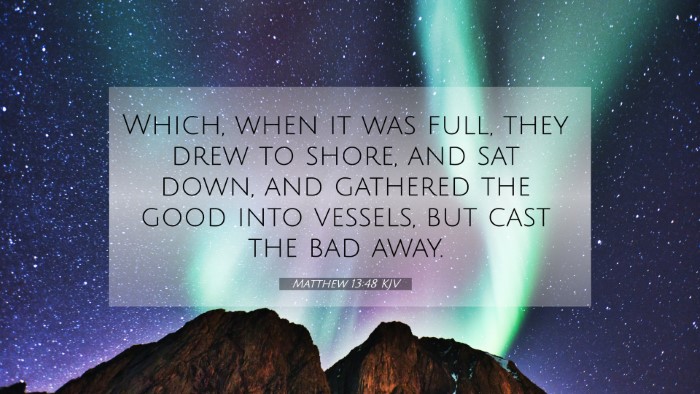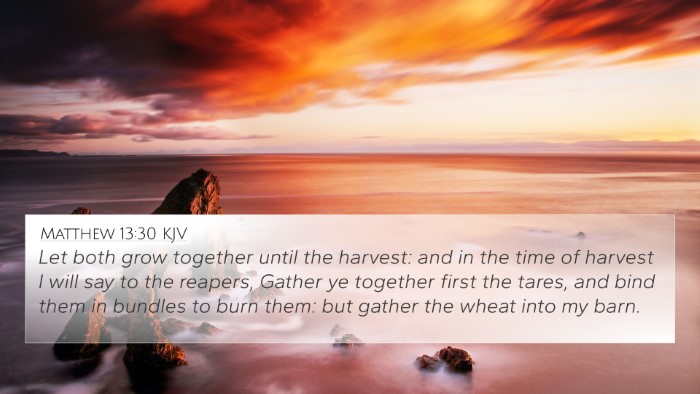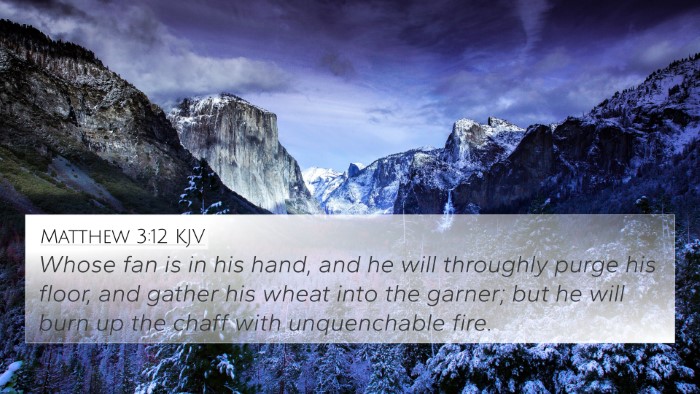Understanding Matthew 13:48
Matthew 13:48 states: "When it was full, they drew it to shore, and sat down and gathered the good into vessels, but threw the bad away." This verse is part of the parable of the net, illustrating the final judgment when the good and the bad will be separated, much like fish caught in a net.
Commentary Insights
This verse emphasizes the theme of divine judgment and separation. Public domain commentaries provide insights into various aspects:
- Matthew Henry: Henry highlights the significance of the net as a symbol of the kingdom of heaven, where both good and bad are gathered. The separation signifies God’s ultimate justice, where the righteous will be rewarded and the wicked punished. He emphasizes reaching a point where the harvest becomes evident, much like what we see in final judgment.
- Albert Barnes: Barnes explains that the net catches various kinds of fish, symbolizing humanity. He interprets the act of drawing the net to shore as representing the end of the world, where believers are gathered together to be with Christ while the unrepentant are destined for a different eternity. The mention of vessels suggests the church or God’s chosen being preserved for His purposes.
- Adam Clarke: Clarke notes the importance of the 'full net,' suggesting it represents the fullness of time when God's plan for salvation is completed. He points out the necessity of discernment in distinguishing between the genuine and the false, urging believers to live with expectation of this separation.
Bible Verse Cross-References
Matthew 13:48 can be cross-referenced with the following verses that carry similar themes of judgment and separation:
- Matthew 25:31-33: The separation of sheep and goats at the judgment.
- Revelation 20:11-15: The Great White Throne Judgment, where Christ judges the dead.
- 2 Thessalonians 1:7-9: The punishment of the wicked and reward of the righteous.
- John 15:6: The fate of branches that do not bear fruit being burned.
- Psalm 1:5: The fate of the unrighteous contrasting with the righteous.
- Luke 3:17: The chaff being separated from the wheat, indicating judgment.
- Matthew 3:12: A similar agricultural metaphor warning of the consequences of unrepentance.
- Galatians 6:7-8: The principle of sowing and reaping, alluding to divine justice.
- Romans 2:6-9: God will repay each according to their deeds, reinforcing the theme of judgment.
- 1 Peter 4:17: Judgment begins with the house of God, marking the importance of internal purity.
Thematic Connections
Across the scriptures, several key themes emerge from Matthew 13:48:
- Divine Judgment: The notion that God will ultimately assess humanity and differentiate between righteousness and unrighteousness.
- Readiness and Preparation: The parable serves as a cautionary tale urging believers to live lives reflecting Christ's teachings.
- Hope in Redemption: The good vessels symbolize the hope offered to those who follow God's commands and live righteously.
Conclusion
Matthew 13:48 provides a sobering reminder of the reality of divine judgment. It underscores the importance of understanding connections between Bible verses to fully grasp the broad narrative of scripture concerning judgment, salvation, and the nature of humanity.
For those interested in Bible verse cross-references, this verse acts as a pivotal point in the broader theme of divine justice presented throughout both the Old and New Testaments, offering an opportunity for comparative Bible verse analysis.





